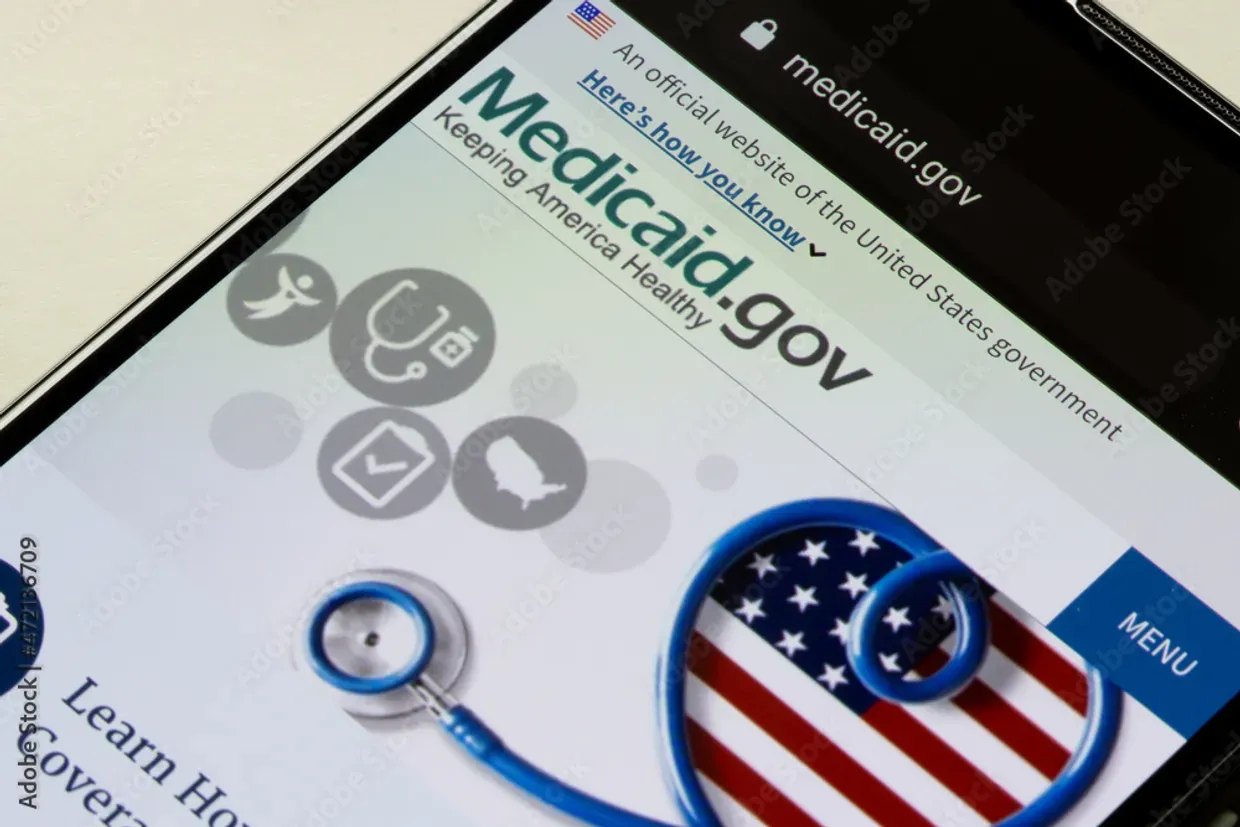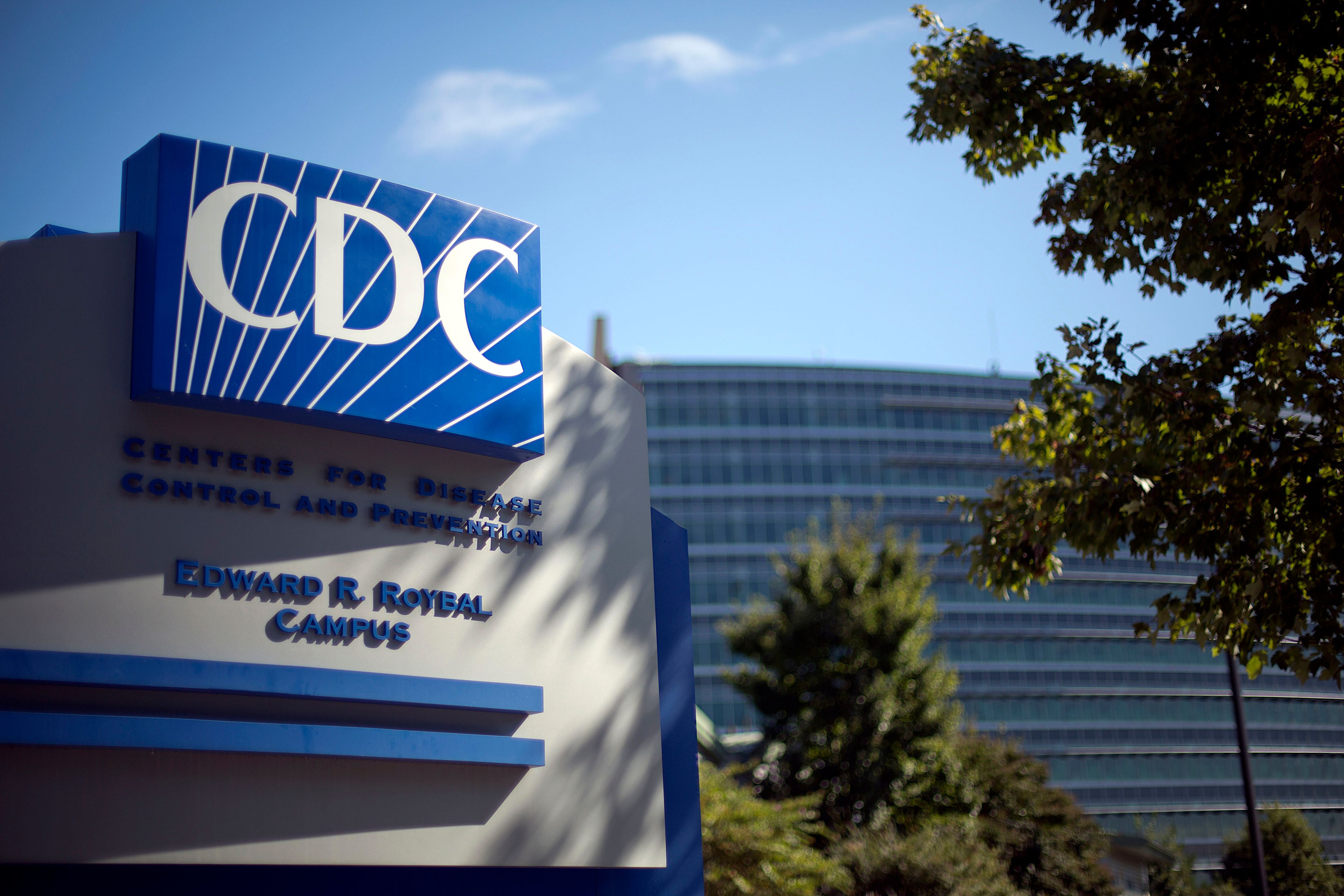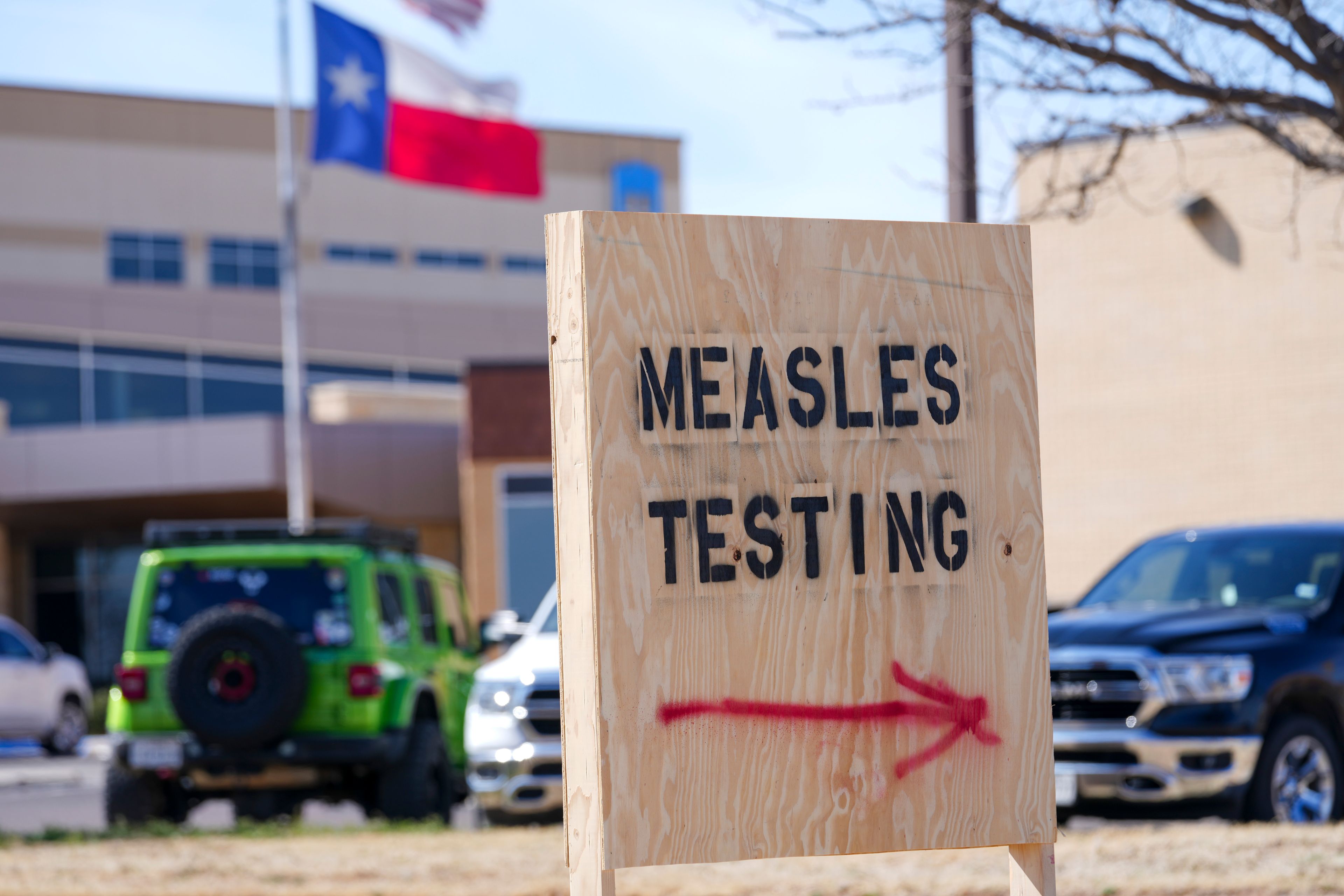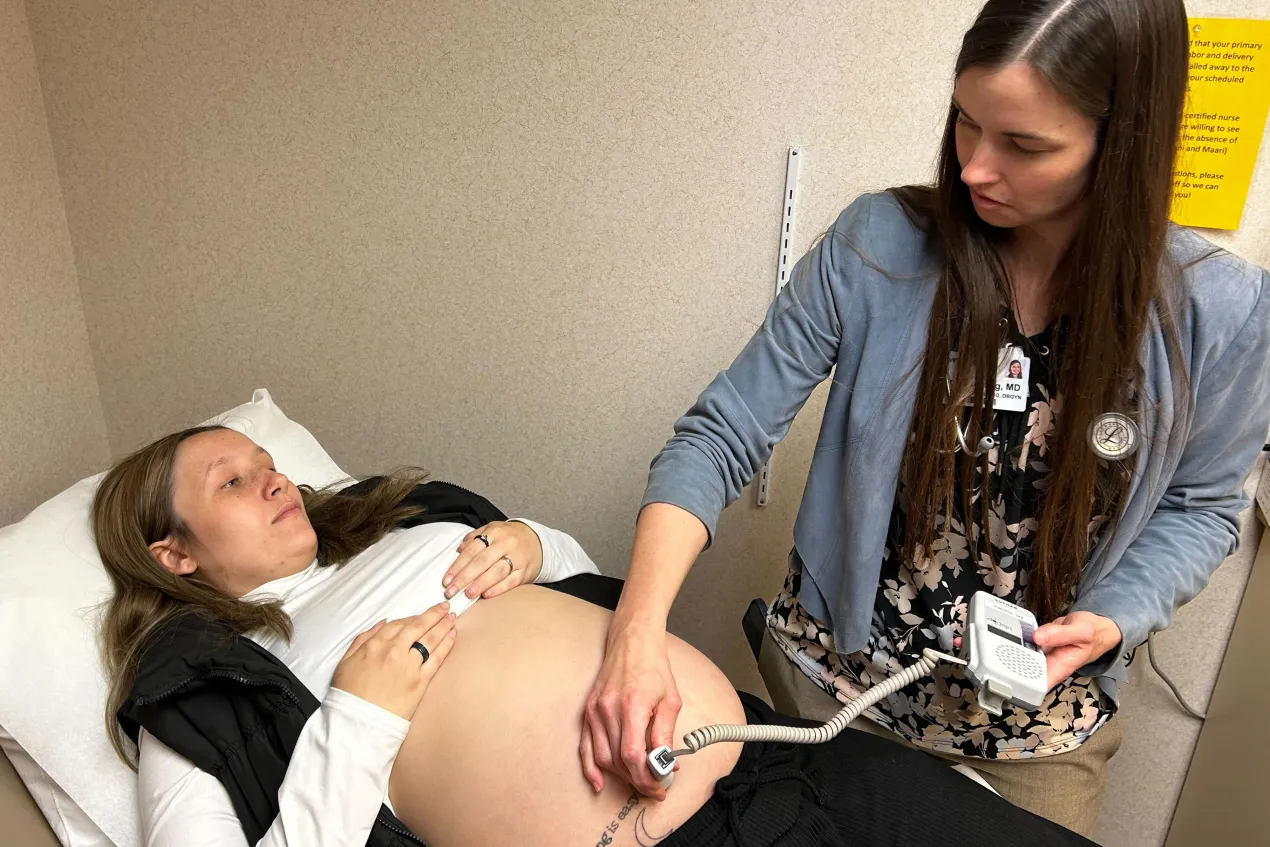Missouri faces potential $2 billion shortfall as federal Medicaid, SNAP cuts threaten state budget
Missouri could face a $2 billion budget shortfall if proposed federal cuts to Medicaid and SNAP are enacted, threatening health care and food assistance for hundreds of thousands of residents.
If proposed cuts to the federal budget come to fruition, Missouri could lose more than $2 billion from its budget.
Potential federal cuts to Medicaid at the federal level could plunge Missouri’s state government into a budgetary crisis because of constitutional obligations.
The deep cuts were proposed in the Republican federal budget resolution by the House Budget Committee in early April.
It’s not clear whether, or how much, Medicaid will be sliced. Plans have called for cutting $880 billion from the federal government under the Energy and Commerce Committee umbrella.
The Congressional Budget Office outlined that even if the Energy and Commerce Committee eliminated everything else possible, the government would still need to cut hundreds of billions of dollars from Medicaid.
Some politicians are pushing back against cutting Medicaid and/or Social Security. For example, 12 Republicans in U.S. Congress recently authored a letter to House Speaker Mike Johnson as well as the majority leader, majority whip and the chairman of the Energy and Commerce Committee stating they “cannot and will not support a final reconciliation bill that includes any reduction in Medicaid coverage for vulnerable populations,” adding that such cuts would “threaten the viability of hospitals, nursing homes and safety-net providers nationwide.”
The cuts would create a massive budget shortfall in Missouri, up to $2 billion annually, according to the Missouri Budget Project organization. About 26% of state expenditures go toward Medicaid in Missouri. Funding to SNAP benefits would also be on the chopping block, as well as education and public services.
In Missouri, the state government is constitutionally required to balance its budget.
Voters in 2020 enshrined Medicaid expansion into the Missouri Constitution as part of the Affordable Care Act, making expansion a fundamental right. These two constitutional requirements could force lawmakers into making cuts to other areas of government.
Regional Medicaid participation
Missouri’s 8th Congressional District, which covers all of Southeast Missouri, has the largest share of residents on Medicaid of all the state’s congressional districts, according to data from the Missouri Budget Project, a not-for-profit, nonpartisan public policy analysis organization that provides independent research on state policy issues in Missouri.
In the 8th Congressional District, 148,000 people are covered by Medicaid, including approximately:
- 83,000 children
- 54,000 working-age adults
- 11,000 adults age 65 or older
In Cape Girardeau County alone, 7,321 children are covered by Medicaid. Nearly 10% of all Cape Girardeau County residents rely on SNAP to help purchase food. The rates are much higher in Bootheel counties.
"The president has been very clear he does not want to cut benefits for individuals on Medicaid and Medicare. He wants to create efficiencies and reforms. He shows an openness to work requirements," 8th Congressional District U.S. Rep. Jason Smith said Sunday on Fox News.
Smith, who is chairman of the House Ways and Means Committee, told News Nation’s show “The Hill” on April 27 that Trump “does not want this to be a health care bill. This is an economic bill that secures the border and unleashes U.S. energy.”
Smith’s office did not respond to inquiries sent by the Southeast Missourian on Tuesday, May 6.
State Sen. Lincoln Hough, a Republican from Springfield who chairs the appropriations committee, prompted a discussion in February, before the budget resolution, by asking what the Missouri Department of Social Services is doing to prepare for potential federal changes, according to reporting by the Missouri Independent.
“I did want to at least put it on the radar of the committee,” Hough said, “that when people talk about changes at the federal level, there are pretty significant implications in what we’re able to do here.”
Jessica Bax, acting director of the Department of Social Services, told senators that the agency will need to “plan for everything that could possibly happen at the federal level, which is difficult to do,” according to reporting from the Independent.
John Voss, state representative for Cape Girardeau, said he didn’t have answers to specific questions from the Southeast Missourian regarding where Congress may be leaning on the cuts, conversations he’s had with members of Congress, whether Missourians should be worried about losing their Medicaid benefits or what kinds of expenditures might have to be stricken from the budget if Medicaid cuts are imposed. But he’s aware of the issue.
“Missouri does receive significant federal funding for Medicaid, and any reduction would create a sizable problem for our budget,” Voss said in an email to the newspaper. “I am hopeful Congress can cut fraud and wasteful spending at the national level so that all of the entitlement programs remain solvent.”
According to Missouri Budget Project documents, the share of Medicaid paid for with federal dollars, known as the federal medical assistance percentage (FMAP), is 90% for Medicaid expansion enrollees. Some budget proposals would reduce the FMAP for the expansion population to the standard match rate of 65%. The constitutional vote from 2020 would require the state to cover that gap even if Congress pulls funding.
Todd Richardson of Poplar Bluff, director of MO HealthNet and former speaker of the Missouri House, said in the February appropriations committee meeting that the department estimates cuts could cost the state between $30 million and $35 million for every percent decrease in the federal match rate, according to reporting from the Independent.
Medicaid expansion enrollees are adults who make up to 138% of the federal poverty level, or $21,597 annually, for an individual in 2025. These expansion enrollees make up about 25% of all Missourians on Medicaid, which is about 348,000 people.
Corey Jones of Fruitland in Cape Girardeau County, relies on Medicaid for Transcranial Magnetic Stimulation that’s “been a lifesaver for me” in dealing with his chronic depression. He works part time at Community Counseling Center, where he helps others get signed up for Medicaid. Jones said he’s worried about the fate of Missourians relying on Medicaid with the talk of the federal cuts.
Gibson Center for Behavioral Change, an organization that focuses on addiction recovery, echoes Jones' sentiments. The Cape Girardeau organization expressed in a recent letter to the editor that it is "deeply concerned about proposed changes to Medicaid and SNAP", which "are often the only support systems available to people in recovery." The letter, signed by Gibson Center for Behavioral Change chief operating officer Ryan Essex, explains that Medicaid covers critical treatment services, mental health care and medications that help those in recovery. Sometimes such people are not physically or mentally ready to take on employment as they begin their sobriety journey.
Essex pointed out that two thirds of people with substance use disorders rely on Medicaid for their treatment. Without it, Essex wrote, "oversdose rates rise, incarceration rates go up, and small recovery providers like ours get overwhelmed."
Data from the Missouri Budget Project shows that Medicaid covers two in five Missouri children. SNAP covers 10% of Missourians, nearly 70% of whom are children, older adults or people with disabilities.
The Missouri Budget Project estimated that up to $2.4 billion would no longer be coming to Missouri, when including Medicaid, SNAP and other programs. That would be the equivalent of 17% of projected general revenue in 2026.
Missouri U.S. Sen. Josh Hawley has announced opposition to cutting Medicaid for Missourians.
“I just want to know, at the end of the day, whatever reforms or package of things are proposed, will it result in reductions in benefits to Missourians? That’s my test,” Hawley said in reporting from Roll Call. Hawley, the former Missouri Attorney General, told Roll Call, “Our voters voted for it. It’s not like the legislature can just adjust it. It’s in our constitution. Our voters voted for it by a big margin.”
Hawley, along with others lawmakers, introduced an amendment to the budget resolution that would strip the instruction to the House Energy and Commerce Committee to find $880 billion in savings. That amendment was not adopted. Hawley did not respond to messages from the Southeast Missourian.
Hawley told Roll Call that he favored work requirements, but not actual cuts. Roughly two-thirds of Missouri’s Medicaid recipients are already employed, according to information from Washington University's Center for Advanccing Health Services, Policy & Economic Research. Fourteen percent of Medicaid recipients who are not working are not working because of disability or illness; 4% are not working because they are caretakers for sick family members; while 1% are students. Thirteen percent of those on the Medicaid rolls are not working because of "other reasons", according to the institute, as of 2023.
Missouri Budget Project estimates that instituting work requirements would cause more than 111,000 Missourians to lose health coverage.
Medicaid facts
What is Medicaid?
- According to Missouri Budget Project: "Medicaid is a health insurance program that provides medical coverage for children and adults with low incomes, pregnant women, seniors and people with disabilities. In Missouri, Medicaid is called Mo HealthNet." In Missouri, Medicaid is the primary payer for about two of every three nursing facility residents.
How is Medicaid funded?
- Medicaid is funded by both the state and federal government.
Who qualifies?
- In addition to children and people with disabilities, working-age adults can qualify for Medicaid if their income is within a 138% range of the federal poverty level.
- Roughly two-thirds of Missouri Medicaid recipients who are of working age are already employed. Thirty-nine percent of those are full-time employees; 28% are part time; and 14% are not working because of disability or illness.
- In 2023, about half the Medicaid population were children and about 10% were older than 65, according to the Center for Advancing Health Services, Policy and Economics Research.
What is a federal budget resolution?
- According to the Congressional Budget Office: “A budget resolution is basically a blueprint to guide Congressional action on budget-related legislation over the course of the year. It does not provide funding for federal programs or change tax law; rather, it sets overall spending and revenue targets, sometimes for as many as 10 years. A budget resolution is not a law, because it is not signed by the President; it takes effect if approved by both Houses of Congress.”
Connect with the Southeast Missourian Newsroom:
For corrections to this story or other insights for the editor, click here. To submit a letter to the editor, click here. To learn about the Southeast Missourian’s AI Policy, click here.












